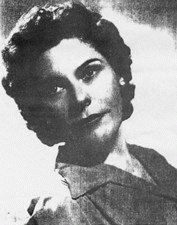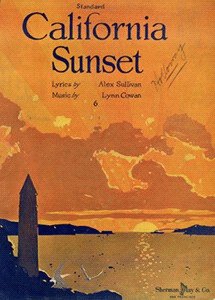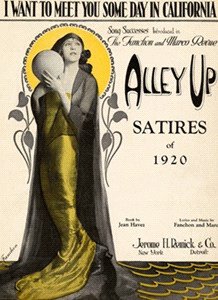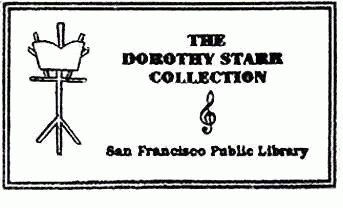Dorothy Starr and The Music Stand
Born on May 21, 1908, Dorothy Starr pursued a career in New York as an operatic and popular singer until, at the age of 51, she relocated to San Francisco and opened The Music Stand at 381-A Hayes Street to fill a niche and sell used sheet music.

By the late 1960s, people were more inclined to purchase recordings of their favorite songs than sheet music, which meant Starr could buy a lot of unwanted sheet music for very little money. Furthermore, because so much sheet music was out of print, her store became a godsend for those trying to locate their favorite songs of the past By naming her business The Music Stand, Starr signaled her passion for putting music into the hands of the working musician and amateur musician alike. As she said, "I like things to go where they are going to be appreciated and used." She had her own idiosyncratic way of doing business that endeared her to musicians, but not necessarily to sheet music collectors. In a taped interview she said, "Many times I got very beautiful scores or rare things, and I didn't put a price on them. And some people would come in and so 'Oooh! This is lovely, how much is this?' I'd say - a hundred dollars. Because there were not good vibes - They should not have it! And somebody else would come in - you know you could see how they lovingly turned the pages, and oh, 'How much?' - '25 cents' - And I still was making money." In many ways Starr was like a music librarian and her store like a music library. Customers described it as an apartment with stacks of music in every location - even in the kitchen. Nonetheless she could usually find within minutes the music that her customers sought, often seemingly miraculously. This turned Dorothy Starr into a legend; phone calls came from all over the country and her store was a regular destination for musicians visiting San Francisco. Staff here at the San Francisco Public Library often referred patrons to her when there were requests for music we did not own. Starr sometimes made larger works available to her customers on a rental basis. When a customer who wanted to buy the music outright would protest, she'd reply, "Look, if I had sold this copy back five years ago to the first person who asked for it, you'd be out of luck - it's amazing how many people think 'me, me, me.'"

Dorothy Starr died on January 31, 1990 at the age of 81. In February 1991, Starr's estate agreed to sell her remaining inventory to the Library. In a complicated set of moves, the Friends of the San Francisco Public Library advanced the funds to the Friends of Dorothy Starr, an organization composed of a number of her most devoted friends and customers. To raise funds to purchase the collection, the Friends of Dorothy Starr held a number of events, most memorably a performance at Club Fugazi on June 10, 1991 and a benefit performance by pianist Michael Feinstein at the Plush Room on January 16, 1993. The Friends of Dorothy Starr then donated the collection to the Library.
The Dorothy Starr Collection at the San Francisco Public Library

I Want to Meet You Some Day in California DancerStarr's motto for her store -- Used and new music - all kinds -- also neatly describes the Dorothy Starr Collection at the San Francisco Public Library. Starr was drawn to all music, whether rare or commonplace, pristine or in tatters, originals or photocopies.
Best known as a great resource for popular songs, they actually make up less than 20% of the Collection [find more popular song resources on the Library's Popular Songs Web page]. Indeed, within the Collection of over 300,000 pieces of sheet music is everything from 600-page opera scores to the single-leaf song broadsides; music from the 18th century through the 1980s; music for all the instruments of the orchestra and all manner of choir and ensemble; and children's music as well as folk songs from all over the world. Over 10,000 popular songs -- one segment of the Collection and a fraction of the overall holdings -- have been cataloged since 1992 by librarians and volunteers into a publicly-accessible sheet music database. In its entirety, the Collection is much too vast and far too fragile for browsing, although specific songs can be requested from the Art, Music and Recreation Center in the Main Library and photocopied for personal use. Larger musical scores and books from Starr's inventory have been incorporated into the Library's music collection and are identified with a distinctive stamp that incorporates the logo Starr used for The Music Stand.


